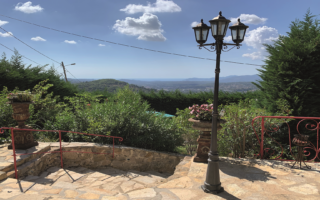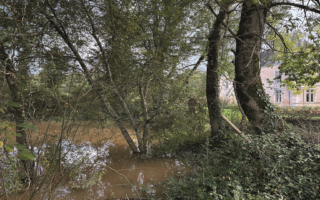Going it alone
If you move to France and need to earn a living, Lynda Racher has some useful tips on how to start your own business
France has long had the reputation as being a country bogged down with red tape and a difficult place to do business. For those of us who recognise, and embrace this, France can also be an exhilarating and, let’s be fair, challenging place to do business.
The system of taxation, turnover thresholds, regulated professions and the dreaded cotisations (social charges) has historically deterred many people from even considering self-employment as a viable alternative to full-time employment or even unemployment.
Over recent years, the French authorities have tried to simplify business registrations to encourage inward investment and home-grown small business start-ups. The most significant of these changes has been the introduction of a pay as you go’ registration called l’auto-entrepreneur.
Collective turnover
Since the scheme was introduced on 1 January 2009, nearly 525,000 people have registered as auto-entrepreneurs, some of whom had previously been working in an unofficial’ capacity.
In the first year of registration, auto-entrepreneurs declared a collective turnover of €696 million, and the minister for small business, Herv� Novelli, estimated that this figure would have climbed to €2.5 billion by the end of 2010.
On the surface, all may appear rosy in the auto-entrepreneur garden, but anecdotal evidence suggests that turnover remains stubbornly low for a large number of businesses. Reports in the press have estimated that the average declared annual turnover is somewhere between €1,400 and €6,000. Despite this, AE can be a good way to undertake live’ market research.
The much-repeated mantra, business start-ups in France take roughly three years before they return a decent profit’ needn’t necessarily apply to your business.
So, what can you do to make sure your business start-up is a success? I’m a business adviser, and when people come to see me, wanting advice on running a business in France, one of the first things I do is ask them a few questions:
What is your product or service? What makes it special? How is it different from what’s already on the market? What problem’ does it fix? Why will people buy it? Do you think enough people will buy it?
How much does it cost to make or buy your product or service? If you’re selling mainly your time (labourer, gardener, etc) remember to add in your wages, and not just the insurance and equipment costs to your cashflow forecasts. If you are selling on’ made or semi-made products, remember to negotiate the best price – you are in the trade after all.
What price will customers pay for your product or service? How much will it cost to make or sell’ your products or services? You are not a charity, so spending a little time working out cost prices per product or service is not a waste of time. Setting the selling price is a little trickier. You can charge what you like, but it will only sell if people agree with your valuation.
What about the competition? What are they charging? How much are they selling? What else are they selling?
Who will buy your product or service? Work out who your customers and markets will be. Do you know this group of people definitely want or need your product or service? Are you sure? Test the market.
How much or how many do you need to sell in a year? How many customers do you need each year? Once you know this, you can start thinking about cashflow
and have a go at forecasting. It’s not as difficult as you might think.
How are you going to tell people about your product or service? You will need to spend some time and money on advertising or marketing your business. If not, once you’ve exhausted your immediate circle of friends and family, your business may go stale. Yes, when your business is established, say after six months to a year, word-of-mouth may be all you need to produce new customers but virtually all new businesses need marketing when they are launched.
Does all this add up, and better still, does it give you a cash surplus at the end of a year? Yes? Then it’s probably a good idea! Now the hard work really begins!
How are you going to research your market? Detailed market research will tell you whether that probably’ is a definitely’ – or a definitely not’. Who is going to use your product or service? Where do they live? What newspapers or magazines do they read? Are they members of any online communities’? Are there enough of them? How much will they buy? And when will they buy it? Are there similar products or services already on the market? How much do they cost? How many are sold?
How are you going to run your business? What are cashflow forecasts? How do you manage risk? What information do you need to keep? How do you write a business plan? Do you need a business plan? How much are you going to charge? What paperwork do you need to do? Who can you talk to?
Within the last year alone, I’ve advised 15 small and start-up businesses in south-west France and ran five business workshops, covering topics ranging from risk management, business planning through to financial fundamentals. The current economic climate may have made it more difficult to start and run a successful business, but not impossible. Good luck!
Useful contacts
For comprehensive information in French and English: www.francobritishchambers.com
For information on self-employed contributions: www.urssaf.fr
For Information on how to set up as a profession lib�rale: www.formapl.org
How to register as an auto-entrepreneur: www.lautoentrepreneur.fr
The business start-up agency in France: www.apce.com
Lynda Racher is a business development specialist offering business coaching for small and solo firms
Tel: 0033 (0)6 89 36 04 17
www.adminmatters.com
Share to: Facebook Twitter LinkedIn Email


